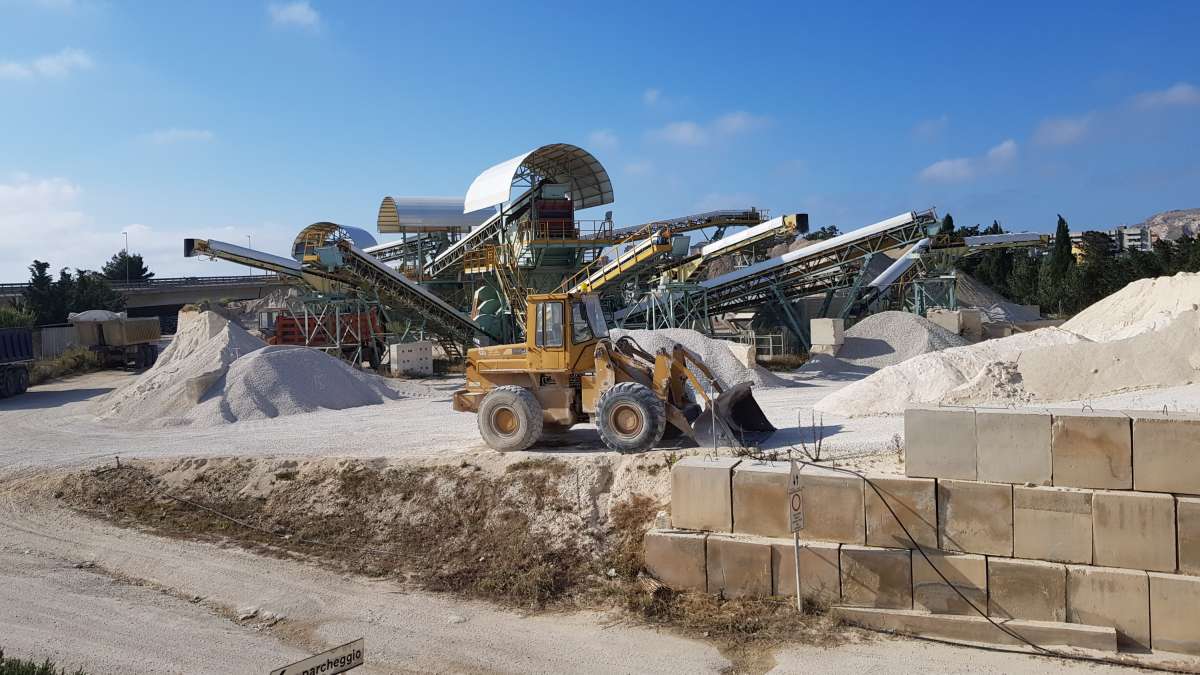

The RE-MED project, "Application of innovation to the development of the circular economy for sustainable construction in the Mediterranean", will link research stakeholders with public and private stakeholders in the construction waste chain.
It brings together nine partners from four countries and involves the Tunisian and Lebanese environment ministries, wishing to develop the use of recycled aggregates for road construction, and to reach 20% of recycled aggregates in construction sites.
A Mediterranean cooperation project
RE-MED, launched on 4 September, is funded by the "IEV CTFT Mediterranean Maritime Basin" programme for cross-border cooperation, co-financed by the European Union under the European Neighbourhood Instrument.
The results of the RE-MED project will support decisions on regulatory developments to grow the use of recycled aggregates. A normative framework must first be built, to define the characteristics of the various recycled aggregates and their processing, as well as for the tests to be carried out.
A circular economy sector dedicated to the recovery of construction waste can then be set up. In addition to having a lower environmental impact, recycled materials limit the consumption of raw materials and create local jobs.
The aim of the RE-MED project is to experiment and transfer, between partner countries, technologies for the transformation of building and infrastructure construction and demolition waste, to enable their reuse locally in the context of road maintenance or construction.
The challenge is to adapt technical and technological know-how to the socio-economic and regulatory environment to enable the emergence of local and sustainable recycling channels for deconstruction waste.
Knowledge transfers between the four partner countries

Cerema, which coordinates this project, is involved in national programmes around the characterisation and reuse of building and infrastructure waste and has developed more than ten years of expertise in this area.
This technology transfer will be led through:
-
Transnational training programmes,
-
Transfer workshops to prime contractors, project managers and businesses,
-
Awareness-raising activities aimed at the general public,
-
Scientific articles,
-
The production of transfer media such as methodology guides
-
A knowledge-sharing platform
-
Demonstrators (experimental road to be created in Tunisia to test and evaluate the various recycled aggregates under real conditions and three waste sorting and recycling facilities will be built to launch the sector, via a call for expressions of interest).
The results of RE-MED will be capitalised and disseminated to the scientific community and to institutional and economic stakeholders, through scientific publications and project-specific events.
---------------------------
Project framework
Programme: Cross-border cooperation with Mediterranean countries under the European Neighbourhood Instrument (IEV) ENI CBC MED
Call for strategic projects
Budget: €3,084,250 (90% funded by the European Union)
Partners:
France: Cerema (Project carrier), Dynedoc
Italy: University of Palermo
Tunisia: Centre d’Essais et des Techniques de Construction (CETEC - Centre for construction testing and techniques), Ministry of Local Affairs and the Environment, Afrique Travaux
Lebanon: Ministry of the Environment, Lebanese Union of Public Works Contractors, American University of Beirut
Associate partners:
Tunisia: Gabés Higher Institute of Water Science and Technology, Tunisian National School of Engineering, National institute of standardisation and industrial property.

